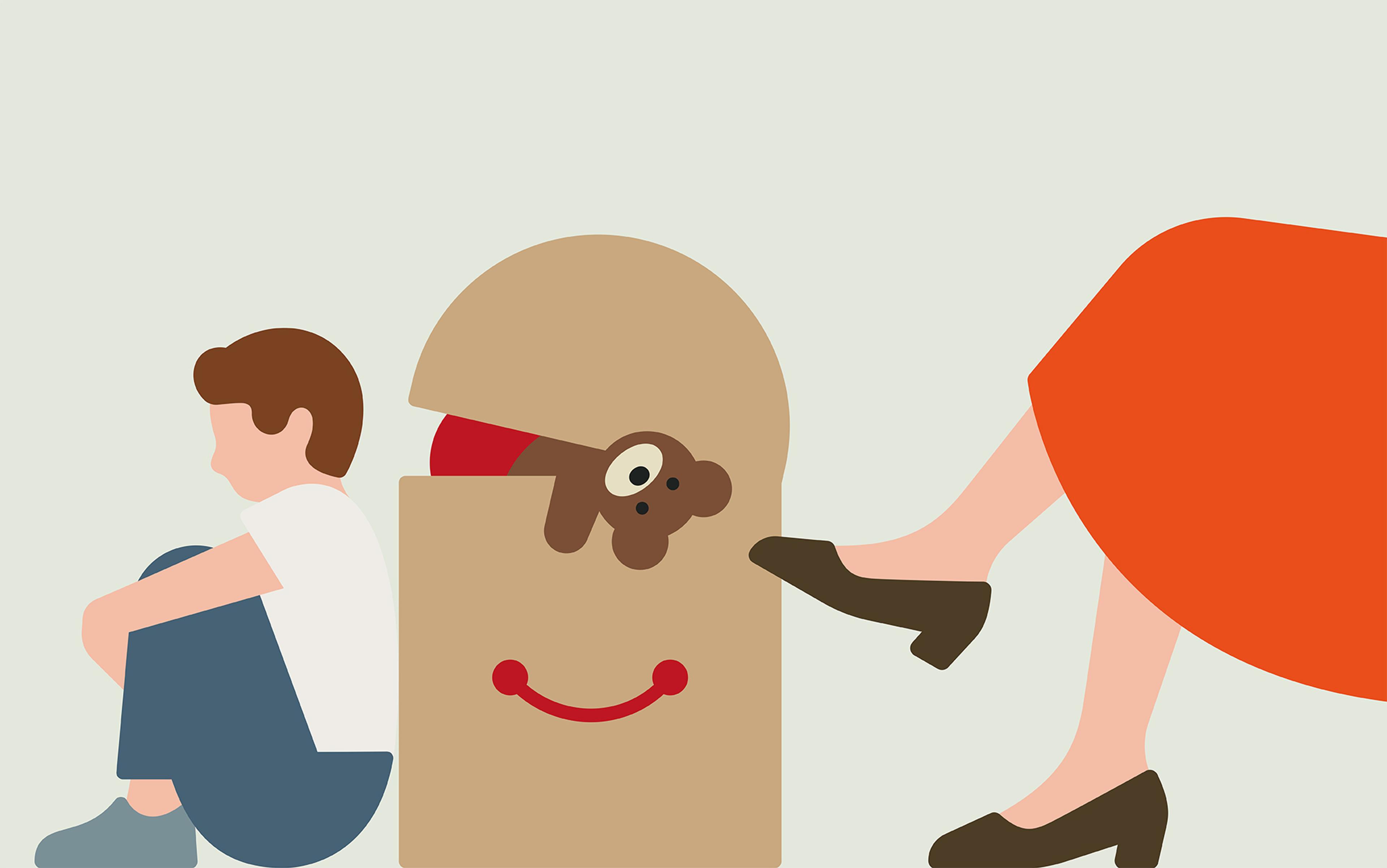There are good reasons for the bad reputation of stereotypes, which may give rise to malevolent propaganda about groups: disproportionate media representations of African-Americans as criminals, women as fit for nothing but child-rearing and homemaking, Arabs and Muslims as nothing but bloodthirsty terrorists, Jews as grasping hook-nosed Nazis perpetrating genocide on innocent Palestinian babies. Such characterisations are inaccurate, immoral and repulsive, to say the least.
But as biased and destructive as these images may be, many stereotypes – fixed characterisations of specific groups – turn out to hold kernels of truth. In fact, even if vicious stereotypes are always inaccurate, that hardly disproves what most everyday people think of African-Americans, women, Jews, Muslims, or any other group. Which raises the question: what do people actually believe about groups, and are those beliefs inaccurate?
Before continuing, therefore, please take the following quiz:
1. Which group is most likely to commit murder?
A. Men
B. Women2. Older people are generally more __________ and less __________ than adolescents.
A. Conscientious; open to new experiences
B. Neurotic; agreeable3. In which ethnic/racial group in the US are you likely to find the highest proportion of people who supported Democratic presidential candidates in 2008 and 2012?
A. Whites
B. African Americans4. People in the US strongly identifying themselves as ___________ are most likely to attend church on Sunday.
A. Conservative
B. Liberal5. On 24 December 2004, a father and his three kids wandered around New York City around 7pm, looking for a restaurant, but found most places closed or closing. At the same time, his wife performed a slew of chores around the house. This family is most likely:
A. Catholic
B. Baptist
C. Jewish
D. Pagan/Animist
Answers appear at the bottom of this paragraph. If you got at least one right, you now have your own personal evidence that not all stereotypes are necessarily wrong. (The answers are: A, A, B, A, C.)
If you got three or more right, congratulations – your stereotypes assessed here were quite accurate. On the other hand, don’t be too impressed with yourself. Lots of people hold stereotypes about as accurate as yours. And yet, most of us have had it beaten into our heads that ‘stereotypes are inaccurate’. Why is that?
For one thing, many social scientists have been deeply concerned with combating oppression – anti-Semitism in the immediate aftermath of the Second World War, racism and sexism following the civil rights and women’s movements in the ’60s, among others. Combating oppression is a good thing, and oppressors exploit stereotypes, so stereotypes are seen as bad.
If you make almost any claim about almost any group, the quickest way to have your claim dismissed is for someone to declare: ‘That’s just a stereotype!’ This ‘works’ because of the widespread assumption that stereotypes are inaccurate, and the unstated insinuation that you are probably a bigot. Thus, any evaluation of the validity of your claim is short-circuited by the peremptory dismissal.
Still, high moral purpose (or lack of it) does not translate to scientific truth (or its absence). We do not usually presume people making other generalisations – say, about the weather in Madrid or the taste of oranges – are doing something bad and inaccurate. Despite this point, the notion of generalisations about people as inherently bad and inaccurate has long been baked into the science without any proof. It is almost impossible to conduct social scientific research on stereotypes without running into the scholarly emphasis on their inaccuracy.
When I first began my research, I had assumed all those social scientists declaring stereotypes to be inaccurate were right. I wanted to know the basis for those claims – not to refute them, but to promote them and proclaim to the world the hard scientific data showing that stereotypes were wrong. So, when some published article cited some source as evidence that stereotypes were inaccurate, I would track down the source hoping to get the evidence.
And, slowly, over many years, I made a discovery: there wasn’t any evidence there. Claims of stereotype inaccuracy were based on… nothing. For example, a classic paper from 1977 describing research by social psychologists Mark Snyder, Elizabeth Tanke, and Ellen Berscheid stated: ‘Stereotypes are often inaccurate.’ Ok, but scientific articles are usually required to support such claims, typically via a citation to a source providing the evidence. This is important so that anyone can find the evidence for such a claim. There is no source here.
As I read more of the literature on stereotypes, I discovered that this pattern was pervasive. Every article or book that declared stereotypes to be inaccurate either similarly cited no source, or ended in an identical dead end via a slightly different route. Many researchers cite social psychologist Gordon Allport’s benchmark book, The Nature of Prejudice (1954) in support of the claim that stereotypes are inaccurate, or at least exaggerations of real differences. And Allport did declare that stereotypes exaggerated real differences. But, aside from an anecdote or two, which is hardly scientific evidence, he presented no evidence that they actually did so.
These practices created what I call ‘The Myth of Stereotype Inaccuracy’. Famous psychologists declaring stereotypes inaccurate without a citation or evidence meant that anyone could do likewise, creating an illusion that pervasive stereotype inaccuracy was ‘settled science’. Subsequent researchers could declare stereotypes inaccurate and could create the appearance of scientific support by citing articles that also made the claim. Only if one looked for the empirical research underlying such claims did one discover that there was nothing there; just a black hole.
‘But wait!’ you say. ‘Researchers are often defining stereotypes as inaccurate, not declaring them to be empirically inaccurate, and they can define their terms how they choose.’ To which I reply: ‘Are you sure that is the argument you are going to use to defend the viability of “stereotypes are inaccurate”?’
Let’s look at that argument more closely. If all beliefs about groups are stereotypes, and all stereotypes are defined as inaccurate, then all beliefs about groups are inaccurate. It is, however, logically impossible for all beliefs about groups to be inaccurate. This would make it ‘inaccurate’ to believe either that two groups differ or that they do not differ, and both cannot possibly be inaccurate. The idea that ‘all beliefs about groups are stereotypes and all are inaccurate’ can be summarily dismissed as logically incoherent.
The inexorable logical necessity of discounting thousands of studies as meaningless goes too far
One could eliminate this problem by changing what is meant by defining stereotypes as inaccurate. Perhaps stereotypes are the subset of beliefs that are inaccurate. In this case, only inaccurate beliefs are stereotypes; accurate beliefs about groups may exist, but they are not stereotypes. This solves the logical incoherence that stems from presuming that all beliefs about groups are inaccurate. But it produces a new sort of incoherence.
Before declaring some belief to be a stereotype you would need to first empirically establish that that belief is inaccurate – otherwise, you could not know that it is a stereotype. And by ‘empirically establish’ I do not mean your personal experiences, quoting a newspaper, or discussing a movie. I mean engaging in systematic surveys of laypeople’s beliefs, comparing those beliefs to rigorous criteria (such as census data or other rigorous studies of group differences), and showing that people’s beliefs do not correspond to those criteria. Vanishingly few social scientists performing research on stereotypes ever present such evidence; anyone subscribing to the idea that we need empirical proof must conclude that work without it does not count. I am willing to be quite critical of research on stereotypes, but the inexorable logical necessity of discounting thousands of studies as meaningless goes too far, even for me.
An early review of the evidence on stereotype accuracy appeared in my book, Social Perception and Social Reality: Why Accuracy Dominates Bias and Self-Fulfilling Prophecy (2012), and was subsequently updated in recent articles. Over 50 studies have now been performed assessing the accuracy of demographic, national, political, and other stereotypes.
The evidence is clear. Based on rigorous criteria, laypeople’s beliefs about groups correspond well with what those groups are really like. This correspondence is one of the largest and most replicable effects in all of social psychology. Stereotype accuracy has been obtained and replicated by multiple independent researchers studying different stereotypes and using different methods all over the world. People have been found to be quite good at perceiving academic achievement, personality, and a variety of social and economic characteristics among racial and ethnic groups in the United States and Canada.
For example, way back in 1978, in a study reported in the Journal of Personality and Social Psychology, social psychologists Clark McCauley and Christopher Stitt first obtained US census data showing that, compared to other Americans, African Americans are less likely to complete high school or college, and more likely to have an unwed mother, be unemployed, and have a family with four or more children. He then asked people from various walks of life – college and high school students, union members, a church choir, masters of social work students, and caseworkers in a social service agency – about their beliefs about the percentages of Americans in general and African Americans in particular with these characteristics. People’s estimated percentages were close to the census data, and correlated extremely highly with the actual differences.
People are also quite good at perceiving many gender differences. By the ’90s, several meta-analyses (analyses combining results from many other studies) of sex differences had been published. Much as McCauley and Stitt started with US census data, social psychologist Janet Swim, in two studies reported in a 1994 issue of Journal of Personality and Social Psychology, took this meta-analysis research as her starting point, which showed, for example, that males outperform females on math tests, and are more restless and aggressive, whereas females are more influenced by group pressure and are more skilled at decoding nonverbal cues. She then asked people to estimate the size of these differences; again, people were quite good, and their estimates again were very highly correlated with the actual differences. Similar results have been found for all sorts of other stereotypes, including those about ethnic groups, age, occupational groups, college majors, and sororities.
Although there is some evidence of inaccurate national and political stereotypes, in general, evidence for stereotype accuracy has been trickling in for 40 years, and has become so overwhelming that even social scientists who might prefer to do so are finding it hard to simply ignore or deny. If one cannot beat one’s breast in righteous indignation over the inaccuracy of stereotypes anymore, how can one still save the rhetorical day? Minimise the importance of stereotype accuracy. Sometimes, modern researchers grudgingly acknowledge that stereotypes are accurate, but go on to declare or imply that this is not very important.
For example, in his influential book, Prejudice: Its Social Psychology (2010), Rupert Brown writes: ‘The question of whether stereotypes are “objectively” (in)accurate is only of marginal interest to most students of prejudice.’ Another tactic is to argue that, even if stereotypes have some accuracy as generalisations, they are still rigid and inaccurate when applied to judging individuals. For example, one of the most popular introductory social psychology textbooks of all time, Elliot Aronson’s The Social Animal (2011) declares: ‘To stereotype is to allow those pictures to dominate our thinking, leading us to assign identical characteristics to any person in a group, regardless of the actual variation among members of that group.’
For example, even if Asian Americans, on average, have higher maths achievement than do other Americans, it is still unreasonable to assume that any given Asian American high school graduate is a math whiz hell-bent on a career in engineering, isn’t it? Well, when phrased in that ‘let’s present what people believe in as extreme and as exaggerated a way as possible so we can beat our breasts in righteous indignation about the invalid and presumptuous nature of their stereotypes’ way, even I have to agree that this is inappropriate.
But are these sorts of extreme exaggerations common? Or do people use their stereotypes approximately rationally?
‘Wait,’ I can almost hear you saying, ‘What can “rational stereotyping” possibly even mean? Even if stereotypes of groups have some accuracy, that does not justify using them to judge people. We should be judging individuals on their merits, not on the basis of stereotypes!’
There is some truth to this objection. Relying on inaccurate generalisations will produce inaccuracy in judging individual cases. This can be seen with a nonsocial example. If Fred believes that Anchorage, Alaska is warmer than Madrid, Spain, and he relies on that belief for guessing where it will be warmer, he will be wrong most of the time. Stereotypes are no different. If Elmer believes that professional basketball players are unusually short, and if he relies on that stereotype to guess their sizes, he will usually be very wrong.
Premised on the assumption that stereotypes about all groups are inaccurate, it logically follows that, to be accurate, we should never use those stereotypes to judge individuals. However, the assumption is invalid. What should we do if our stereotype is not wrong? Consider three situations:
1. We know nothing about the person except their group
2. We know something about the person but not much
3. We know quite a lot about the person
Consider the case of temperature in Anchorage versus Madrid. Most reasonably informed people will know that it is generally warmer in Madrid. If you know nothing else about today’s weather, and wish to be as accurate as possible in predicting today’s high temperature in each place, you will predict warmer temperatures in Madrid. Would this mean your beliefs about climate are irrational? That you are an anti-Anchorage bigot? Of course not. It means you recognise that, without good reason to believe otherwise, it will always be better to guess that the place with the higher average temperature is warmer.
The same logic applies to stereotypes. If you are asked to predict who has greater yearly income, Leroy Jefferson, who is African American, or George Billingsworth, who is a white American, what should you do? If you know anything about the income of African Americans and whites in the US, you will predict that George is richer. You should predict this every time you are asked. Always predicting that the selected white person would be wealthier would not be perfectly accurate – but doing so would lead one to be as accurate as possible under the circumstances. Would it mean that you perceive all African Americans as alike, or that you are some type of bigot? Of course not.
In other situations, people may have unique information about a person that may be useful but is not definitive. That information may be limited or ambiguous, so that, although it might influence a judgment, it cannot determine what that judgment should be. In the case of weather in Anchorage versus Madrid, say you get one piece of information about each location: Jane, a lifelong resident of Anchorage, considers it ‘cold’ today; and Jan, a lifelong resident of Madrid, considers it ‘cold’ today. You do not know Jan and Jane, and you get no other information.
The ‘unique information’ that you have is identical for the two places. Should you, therefore, predict that they have identical temperatures? That would be silly. In this case, you probably would be most accurate relying on both the unique information (both residents considered it ‘cold’, so it is probably colder than usual in both places), but also on the valid generalisation that Alaska is usually colder than Spain. Estimating that Anchorage is colder than Madrid is still far more likely to be correct than estimating that their temperatures are identical.
The same logic applies to stereotypes. Consider stereotypes of peace activists and Al-Qaeda members. You hear the same thing about an individual from each group: they have ‘attacked’ the United States. Does this mean they engaged in identical behaviours? Not likely. The attack perpetrated by the peace activist is most likely a verbal critique of US policies; the Al-Qaeda attack is probably something more violent. Predicting that an Al-Qaeda attack would be identical to a peace group attack would be silly. Using your stereotypes will likely aid, not hinder, you in reaching a valid understanding of the nature of the attacks.
The same principles hold for groups about whom it is socially unacceptable to hold stereotypes based on gender, nationality, race, social class, religion, or ethnicity. If the stereotype is approximately accurate and one only has a small bit of ambiguous information about an individual, using the stereotype as a basis for judging the person will likely enhance accuracy.
In situations where one has abundant, vividly clear information about an individual, the stereotype becomes completely irrelevant
Finally we come to the situation in which information about a particular target is clear, relevant and highly informative. I refer to such information as ‘definitive’ because it directly answers whatever question one has about the person being judged. For example, when judging academic accomplishments, we might have a college applicant’s standardised test scores, class rank and GPA. When we have this information, the stereotype means much less – just as it would if we know the exact temperatures in Anchorage and Madrid.
For instance, professional basketball players tend to be tall. It is very rare to find one shorter than 6ft 4in and that is very tall. But, every once in a while, a truly short guy makes it into the National Basketball Association. Spud Webb was a starting player in the ’90s, and he was about 5ft 7in. Now that you know his height, should your stereotype of basketball players influence your judgment of his height? Of course not. His height is his height, and his membership in a generally very tall group – professional basketball players – is completely irrelevant. In situations where one has abundant, vividly clear, relevant information about an individual, the stereotype becomes completely irrelevant.
In the face of such logic, we must still proceed with care when deciding whether or not to apply our stereotypes to an individual. Stereotypes are almost never perfectly accurate, and some of them are highly inaccurate. Political stereotypes are both accurate and inaccurate. People know quite a lot about the differences in political positions between those on the left versus right of the political spectrum, but people also consistently exaggerate those differences, typically believing partisans hold more extreme views than they really hold. For example, people generally know that liberals are more pro-choice and support gay marriage more so than do conservatives. However, both liberals and conservatives tend to see liberal/conservative differences on these issues as considerably larger than they actually are.
We also find some widespread inaccuracies in stereotypes about personality differences across nationalities. For example, you may be quite surprised to find that the Japanese score quite low on conscientiousness and quite high on neuroticism – opposite the stereotype of this group. As it turns out, people’s beliefs about these sorts of characteristics hardly correspond at all with what people in 26 cultures, including Argentina, France, China, Russia, UK and US, are actually like.
To deal with the complexity, it’s best to look to the stereotype only if other information is missing or ambiguous, and to disregard it when we have definitive information. But even here we need to be careful. We tend to be overly confident in the validity of our own beliefs. Humility is in order. Unless we have excellent evidence for the validity of our beliefs, we probably should not be too sure our stereotypes are correct. If we are not sure, relying on them is pretty dubious. Furthermore, if we are making an important decision – something like a hiring or college admissions decision – it behoves us to make sure to get as much definitive information as possible.
If people relied on their stereotypes more or less rationally, they would rely on them to inform judgments when they had little or no definitive information, but ignore them when they had definitive information. And it turns out this is just what most people do.
In contrast to religions and ideologies, sciences self-correct in the face of new evidence
Typically, when people have clear, definitive, relevant information, they rely on that information almost exclusively. Indeed, reliance on personal characteristics, rather than stereotypes, is up there with stereotype accuracy as one of the largest and most replicable effects in social psychology. Some 20 years ago, when social psychologist Ziva Kunda and philosopher Paul Thagard tabulated all the studies they could find that addressed this issue, they concluded effects of unique, personal characteristics on judgments were massive. The effects of stereotypes in such situations are small to nonexistent. On the other hand, when personal information is absent, or ambiguous, people do rely on their stereotypes, although even in these situations, stereotype biases are not very large.
In recent years, scientific psychology has been wracked with a series of threats to its validity and credibility. Revelations of fraud, questionable research practices, difficulties replicating famous studies, and wildly unjustified conclusions have all come to the fore. Given all this, one might expect psychologists to be shouting to the world that, in stereotype accuracy and massive reliance on personal characteristics, we have found two valid, independently replicable, powerful phenomena. But if one did think that, one would be wrong.
Testaments to the inaccuracy of stereotypes still dominate textbooks and reviews of stereotyping. Many think of ‘science denial’ as something primarily characterising right-wing disbelief in climate science and evolution. Apparently, however, it is alive and well in social scientists’ own resistance to the overwhelming evidence of high accuracy and rationality in many people’s stereotypes.
If the overwhelming evidence does not change your belief in the so-called ‘inaccuracy’ of stereotypes, what could? In contrast to religions and ideologies, sciences self-correct in the face of new evidence, and hopefully you will take that evidence in. Nothing in this essay should dissuade anyone from continuing efforts to combat discrimination. I hope, however, that with respect to the longstanding claim that ‘stereotypes are inaccurate’, it has persuaded you that a little scientific self-correction is overdue.






